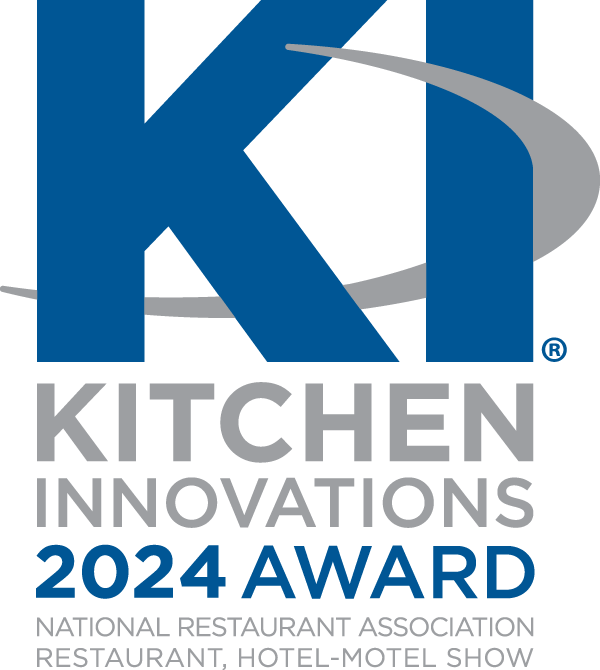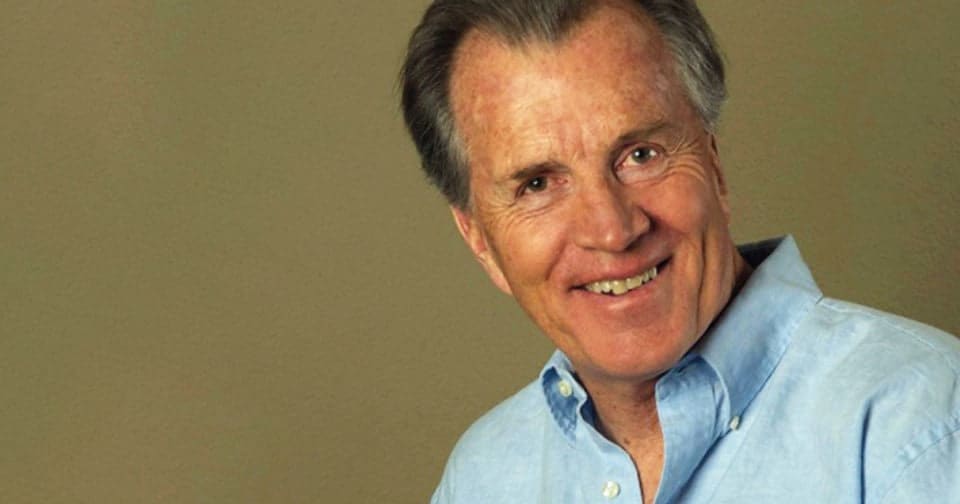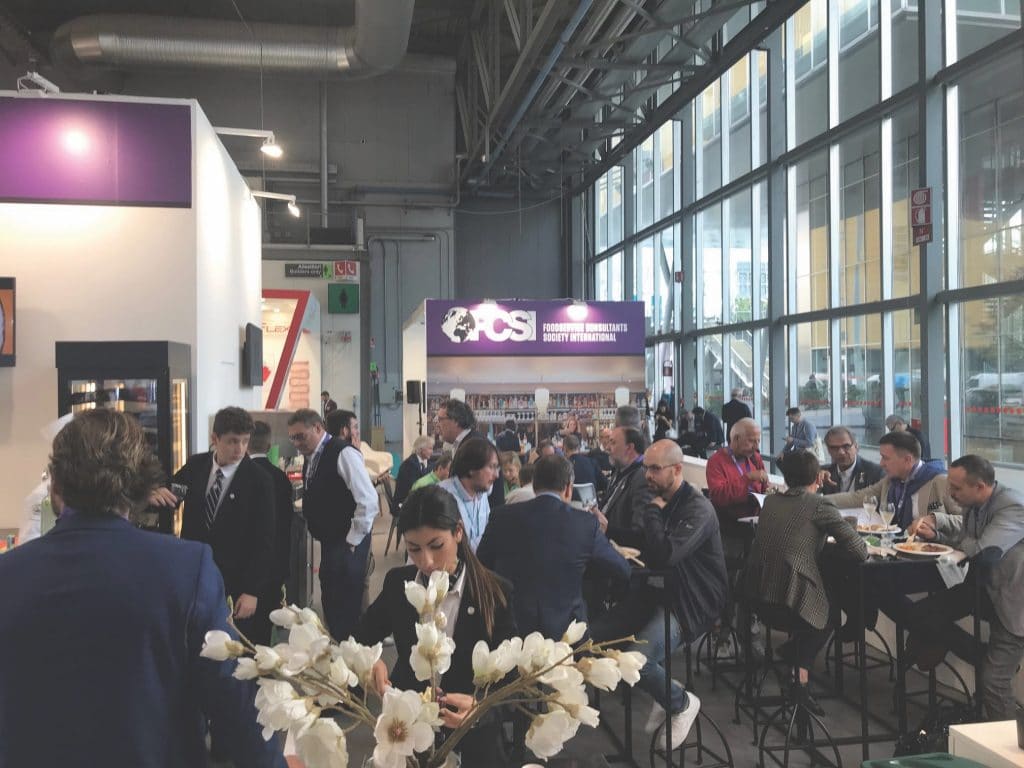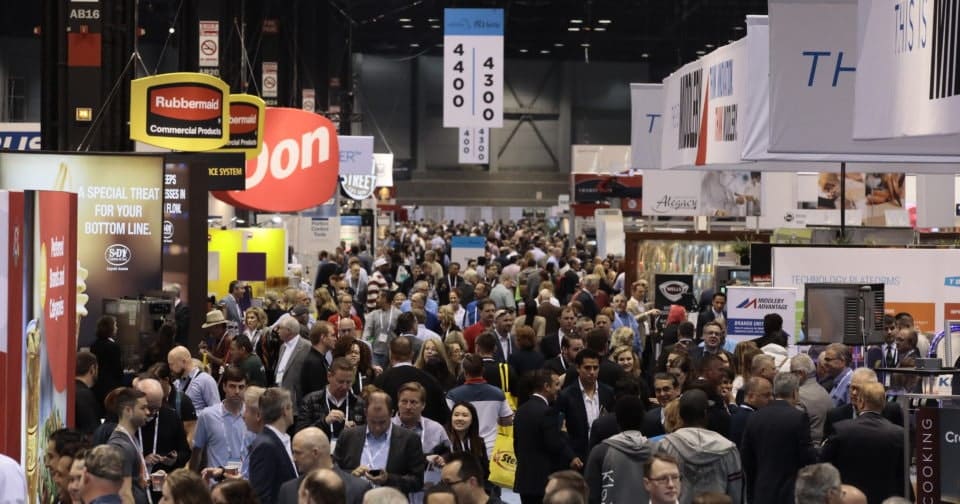
Last year Covid-19 put an abrupt stop to the foodservice and hospitality events calendar. The pandemic forced the cancellations and postponements of hospitality events; now as vaccine roll-outs are underway and the light at the end of the tunnel comes into view, they start to re-emerge.
This week Germany’s Internorga is the first major show to take place in this end-stage of the global pandemic. With national lockdowns and travel bans still in place across the world, it is an all-digital affair, titled IDX_FS International Digital Food Services Expo.
“The entire trade fair industry was severely restricted by the coronavirus pandemic. At the same time, however, it has also led to new food for thought and significantly accelerated digitalisation,” says Bernd Aufderheide, chairman of the management board of Hamburg Messe und Congress.
“The IDX_FS Expo is not only an absolute must for all those involved in the foodservice and hospitality market, but also sets new benchmarks when it comes to digital approaches to trade fairs.”
Restarting the hospitality business
Other organisers have decided to stick with the in-person approach, with added safety measures. The 2020 edition of Hospitality Innovation Planet (HIP), a Spanish event bringing together a conference element with trade show, was among the last to take place before the world shut down last year and, according to event director Manel Bueno, the plan was always to return with a physical event this year.
“The Horeca sector has been one of the most affected by the pandemic and, for that reason, HIP2021 will be an unprecedented edition designed especially to help restart the hospitality business,” he says. “The hospitality industry has struggled every day to continue operating, keeping jobs and even contributing with its taxes, without some of them being opened.”
And the appetite to attend an in-person event remains, he adds. More than 300 companies will exhibit their solutions on the show floor and over 9,000 delegates have registered to attend.
“Trade shows are crucial to the Spanish economy and business events, exhibitions and congresses play a strategic role for economic recovery,” he explains. “The activity of tradeshows in Spain generates more than €10,800m added to the national GDP and more than 83,000 jobs.”
The show will go ahead 22-24 March and organisers have followed safety recommendations of health authorities including The Spanish Ministry of Health and the World Health Organization. These include temperature measurement on entering, mandatory mask wearing during the entire visit, capacity control in auditoriums and supervision of social distancing as well as the use of contactless technology.
Covid-secure protocols
One of the key dates in the calendar for foodservice professionals is the biannual appointment with Italy’s gigantic trade show HostMilano, which will open its doors to delegates again in October. To guarantee the safety of delegates and exhibitors a containment protocol will be implemented. Advance online booking will be compulsory and visitors will need to choose a time slot for their visit.
Added Covid-secure protocols will be implemented, but, says Simona Greco, Fiera Milano exhibitions director, ultimately exhibitors are responsible for the space they have leased. “In particular, they have to comply with all the applicable spread containment rules, and they have to ensure cleanliness inside their spaces,” she adds.
Fiera Milano has been working on digital transformation for a while now. “Fiera Milano Platform – an ecosystem of technologically advanced, scalable solutions – allows our stakeholders to live a new hybrid experience,” says Greco.
“The portal enhances their capability to build a meeting agenda and populate the Expo Plaza section, a next-generation smart catalogue that helps professionals get to know the exhibitors and the product showcased and arrange meetings from remote.”
Benefiting from a hybrid approach
Madrid Fusión, the renowned gastronomy conference, held in the Spanish capital every year, will for the first time in its 18-year history, launch with an ambitious hybrid event – a comprehensive virtual programme running concurrently with the physical event in Madrid.
This is possible because event organiser Vocento Group, was quick off the mark during the first wave of the pandemic and, with an eye on the Gastronomika conference scheduled for October, set about building a digital platform that allowed events to reach a much wider audience.
Continued Covid restrictions mean that the in-person audience is reduced from 1,000 people in the auditorium to 500 people, but the virtual element makes it possible to reach many more people all over the world.
With the digital platform in place a return to the purely physical analogue event is out of the question for Patricia Mateo, managing director of Vocento Gastronomia and CEO and founder of Mateo & Co. “For some of the Gastronomika sessions we saw 5,000 people tune in – a number of people you couldn’t fit into a physical space – and audience members joined from 105 different countries,” she says.
“There are many chefs in Latin America who would like to attend but simply can’t afford the plane ticket and accommodation; this is a way to be a part of the conference.”
For Madrid Fusíon there are two price levels; €300 for the in-person experience – which also gives digital access – and €100 for digital only access.
For Mateo there is no going back now. “We have broadened the scope to include many more people – people who knew of us but who were not able to attend in person,” she says.
“This is something I see as a positive impact of the pandemic and it would be very difficult to go back to how we did things before.”
Tina Nielsen




